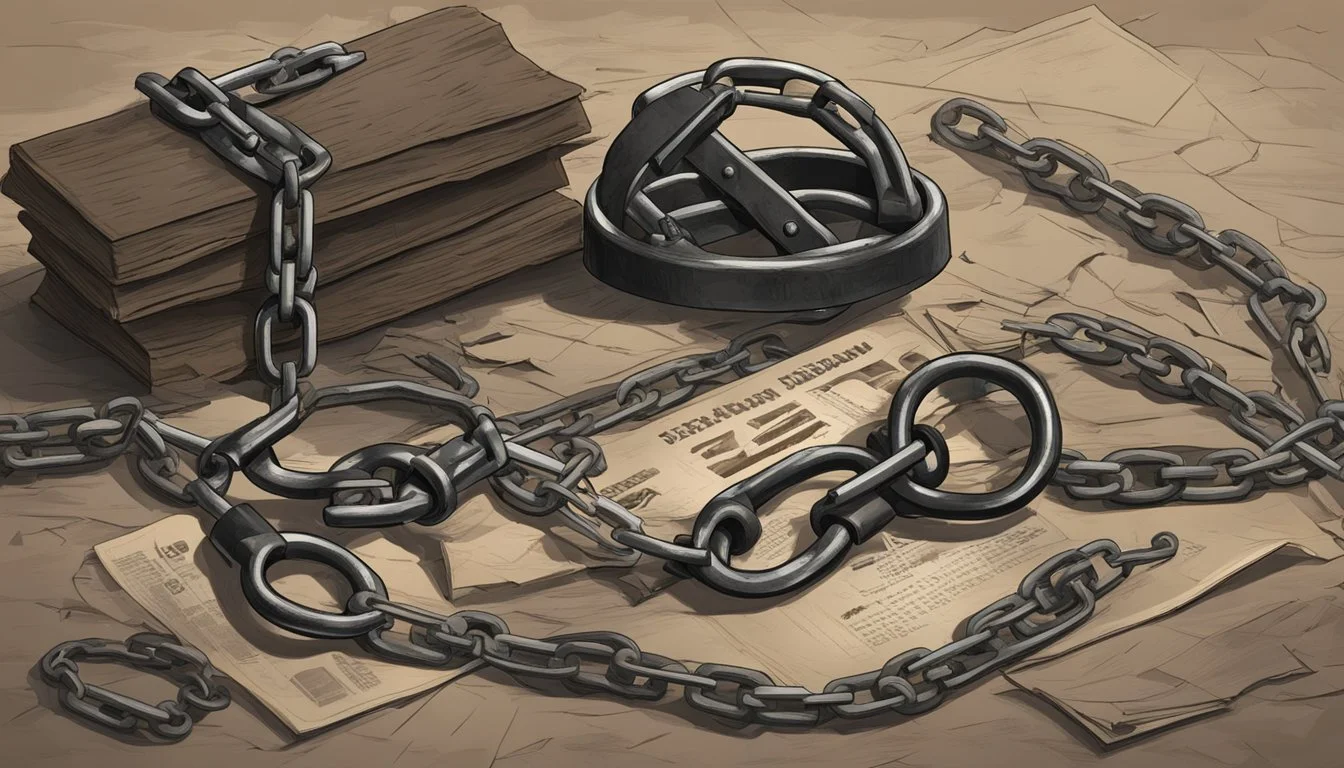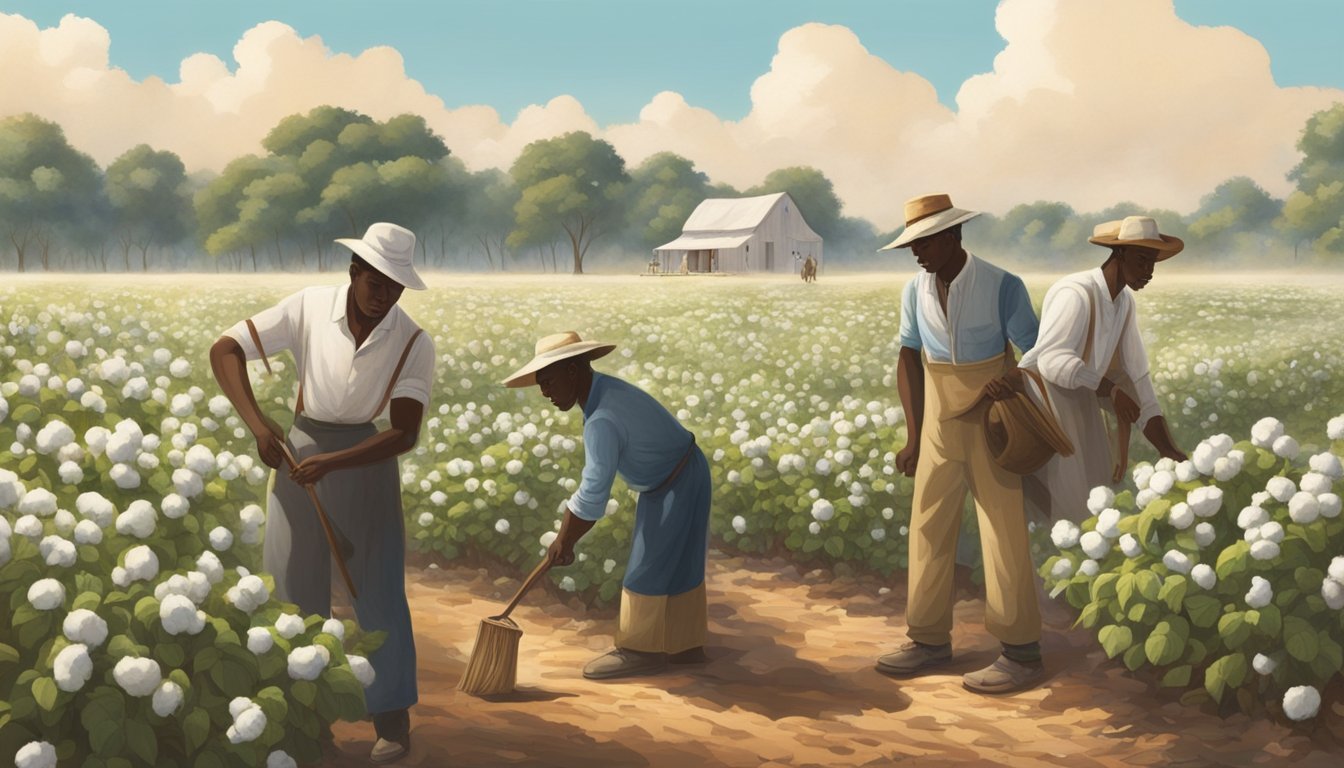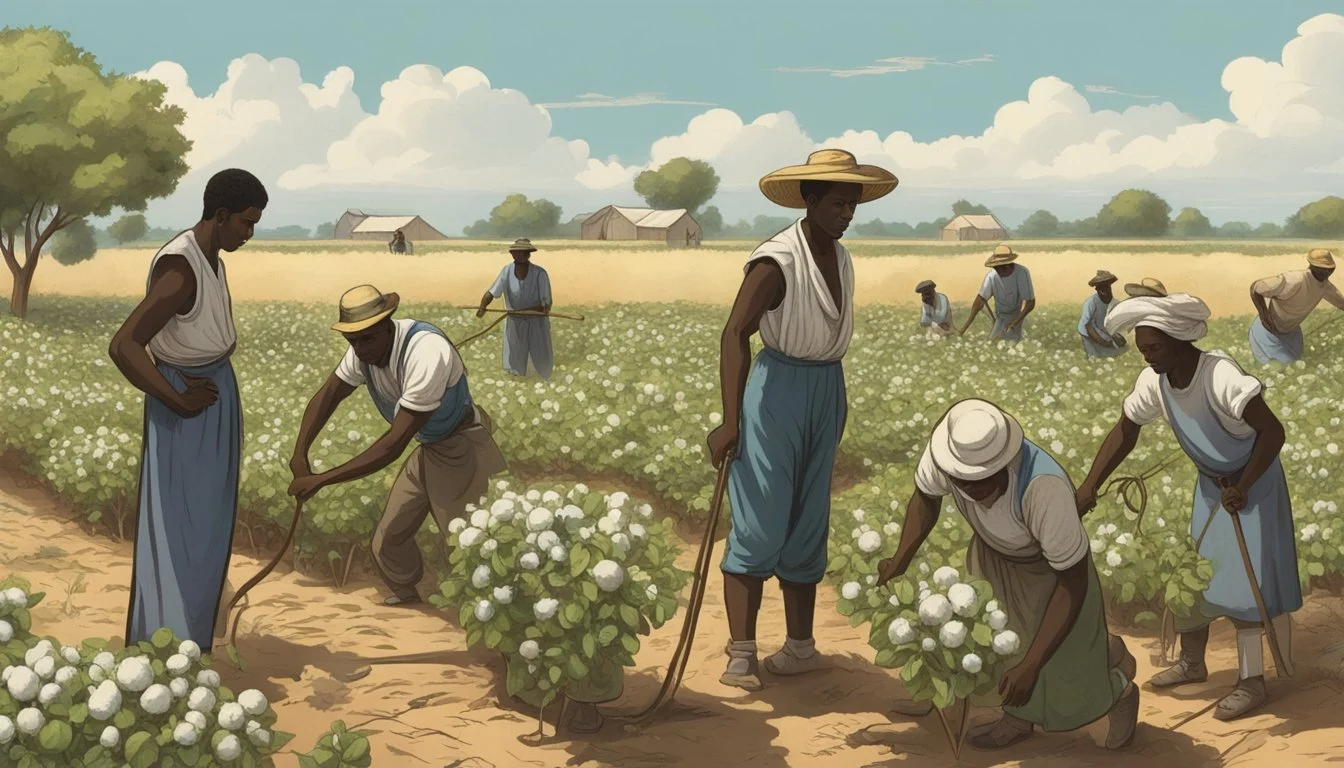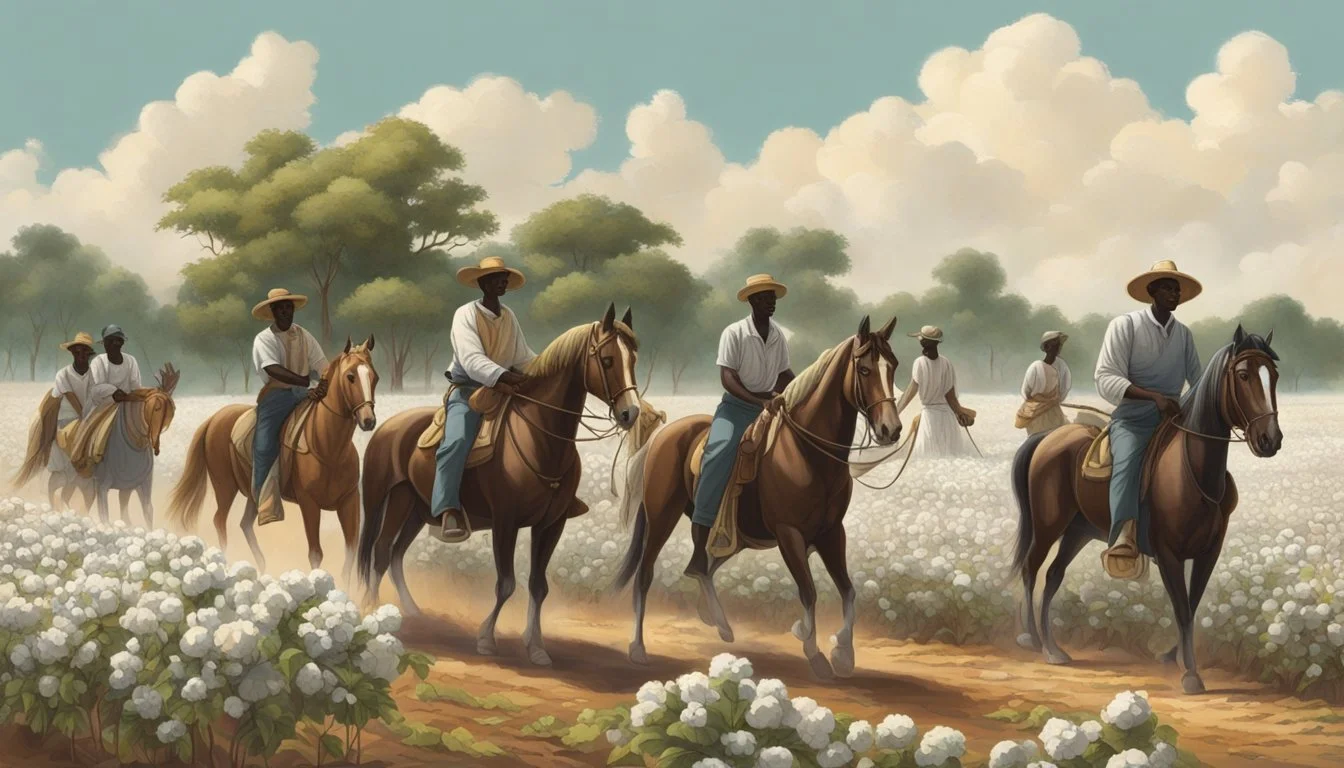11 Documentaries on the History of Slavery and its Abolition
Essential Viewing for Understanding America's Past
Documentaries exploring the history of slavery and its abolition provide crucial insights into one of humanity's darkest chapters. These films shed light on the brutal realities of the transatlantic slave trade, its far-reaching impacts, and the courageous individuals who fought to end it. Through powerful storytelling and historical analysis, these documentaries offer viewers a deeper understanding of slavery's complex legacy and its ongoing effects on modern society.
From firsthand accounts of enslaved individuals to examinations of key historical events, these films cover a wide range of perspectives on slavery and abolition. They showcase archival footage, expert interviews, and dramatic reenactments to bring history to life. Many of these documentaries also draw connections between past injustices and contemporary issues, encouraging viewers to reflect on how the echoes of slavery continue to shape our world today.
1) 13th - Directed by Ava DuVernay
Ava DuVernay's 2016 documentary "13th" examines the connection between slavery and the modern American prison system. The film's title refers to the 13th Amendment, which abolished slavery except as punishment for a crime.
DuVernay explores how this loophole has been exploited, leading to mass incarceration in the United States. The documentary highlights that while the U.S. has only 5% of the world's population, it houses 25% of the world's prisoners.
"13th" traces the explosive growth of the U.S. prison population from about 200,000 in 1970 to over 2 million today. It argues that this increase disproportionately affects African Americans.
The film draws parallels between slavery and the current prison labor system, suggesting that incarceration has become a new form of racial control. DuVernay presents this argument through a combination of archival footage, interviews, and statistical data.
"13th" received critical acclaim for its powerful examination of race, justice, and mass incarceration in America. It provides a thought-provoking look at how the legacy of slavery continues to impact the U.S. criminal justice system.
2) Slavery by Another Name - Based on Douglas A. Blackmon's Book
"Slavery by Another Name" is a powerful documentary based on Douglas A. Blackmon's Pulitzer Prize-winning book. The film explores the continuation of forced labor practices in the American South following the Civil War.
The 90-minute documentary challenges the widely held belief that slavery ended with the Emancipation Proclamation. It reveals how new forms of involuntary servitude emerged and persisted for decades after the Civil War.
Blackmon's work illuminates the intentional revival of slavery through economic disempowerment. The documentary examines how various systems, including convict leasing and debt peonage, effectively re-enslaved many Black Americans.
The film covers the period from the Civil War to World War II, shedding light on a dark chapter of American history often overlooked in mainstream narratives. It provides a critical examination of the legal and social structures that perpetuated these unjust labor practices.
"Slavery by Another Name" offers viewers a chance to reset their understanding of American history. It presents singular, astonishing facts that challenge common assumptions about the timeline of slavery's end in the United States.
3) Amistad - Directed by Steven Spielberg
Steven Spielberg's 1997 film "Amistad" brings to life the true story of a pivotal legal battle in American history. The movie depicts events from 1839 when a group of Mende tribesmen took control of the Spanish slave ship La Amistad off the coast of Cuba.
The film follows the subsequent legal proceedings as the captured Africans fight for their freedom in the United States. It showcases the complexities of the American legal system and the tensions surrounding slavery in the pre-Civil War era.
Spielberg's direction brings authenticity to the historical setting, with meticulous attention to period details. The cast includes notable performances by Djimon Hounsou, Anthony Hopkins, and Morgan Freeman.
"Amistad" received critical acclaim for its portrayal of this significant chapter in the fight against slavery. It earned four Academy Award nominations, highlighting its impact as both a cinematic achievement and a powerful educational tool.
The film explores themes of justice, freedom, and human rights, offering viewers a compelling look at a lesser-known but crucial event in the history of slavery and its abolition.
4) Roots - Based on Alex Haley's Novel
"Roots" began as a groundbreaking novel by Alex Haley, published in 1976. It tells the story of Kunta Kinte, an 18th-century African man captured and sold into slavery, and follows his descendants through American history.
The book was adapted into a television miniseries in 1977, becoming a landmark event in American culture. It exposed millions of viewers to the brutal realities of slavery and its lasting impact on African American families.
"Roots" sparked widespread interest in genealogy and African American history. It encouraged many people to explore their own family histories and confront the legacy of slavery in America.
The miniseries was one of the most-watched television events in U.S. history. It played a significant role in mainstream America's reckoning with the country's slave-owning past.
In 2016, a remake of "Roots" premiered on the History Channel. This new adaptation aimed to introduce the story to a new generation of viewers and continue the conversation about slavery's enduring effects.
5) The Abolitionists - Part of PBS's American Experience
"The Abolitionists" is a compelling documentary series that aired on PBS as part of their American Experience program. The series explores the lives and contributions of key figures in the abolitionist movement.
The documentary focuses on influential abolitionists such as Frederick Douglass, William Lloyd Garrison, Harriet Beecher Stowe, John Brown, and Angelina Grimke. It examines their roles in the fight against slavery in the United States.
Through in-depth storytelling, the series highlights how these individuals worked to expose the fundamental contradiction of a nation founded on liberty while allowing slavery to persist. Their efforts ultimately set the country on a path toward confronting this issue.
The documentary also sheds light on the significant role of women in the abolitionist movement. Despite facing societal disapproval, many women spoke out publicly against slavery, contributing greatly to the movement's success.
"The Abolitionists" provides viewers with a comprehensive look at the people and events that shaped this critical period in American history. It offers valuable insights into the struggles and triumphs of those who fought to end slavery in the United States.
6) Eye on the Prize - Chronicles America's Civil Rights Movement
"Eyes on the Prize" is a groundbreaking documentary series that examines the American Civil Rights Movement. The series covers key events from 1954 to 1985, providing a comprehensive look at this pivotal period in U.S. history.
The documentary features interviews with participants and witnesses, offering firsthand accounts of crucial moments. It includes footage of the Montgomery bus boycott, the integration of Little Rock Central High School, and the Selma to Montgomery marches.
"Eyes on the Prize" explores the strategies and tactics used by civil rights activists to challenge racial segregation and discrimination. It highlights the roles of prominent figures like Martin Luther King Jr., Malcolm X, and Rosa Parks.
The series also sheds light on lesser-known aspects of the movement, including local grassroots efforts and the contributions of ordinary citizens. It examines the impact of the Civil Rights Act of 1964 and the Voting Rights Act of 1965.
"Eyes on the Prize" has been praised for its thoroughness and objectivity. It serves as an important educational tool, helping viewers understand the complexities and significance of the Civil Rights Movement in shaping modern American society.
7) Beloved - Film Adaptation of Toni Morrison's Novel
The 1998 film "Beloved" brings Toni Morrison's Pulitzer Prize-winning novel to the screen. Directed by Jonathan Demme, the movie stars Oprah Winfrey as Sethe, a formerly enslaved woman haunted by her past.
Danny Glover portrays Paul D, while Thandiwe Newton takes on the role of Beloved. The film explores the psychological impact of slavery on its characters in the aftermath of the American Civil War.
Demme's adaptation remains largely faithful to Morrison's original work. The movie delves into themes of trauma, memory, and the supernatural, as Sethe grapples with the ghostly presence of her deceased daughter.
Despite critical acclaim for its performances and visual style, "Beloved" struggled at the box office. The film's three-hour runtime and challenging subject matter may have contributed to its limited commercial success.
"Beloved" serves as a powerful cinematic exploration of slavery's lasting effects on individuals and families. It brings Morrison's complex narrative to life, offering viewers a visceral and emotionally charged depiction of this dark chapter in American history.
8) Lincoln - Directed by Steven Spielberg
Steven Spielberg's "Lincoln" is a captivating historical drama that focuses on the final months of Abraham Lincoln's presidency. The film stars Daniel Day-Lewis in a powerful portrayal of the 16th U.S. President.
Set against the backdrop of the Civil War, the movie primarily revolves around Lincoln's efforts to pass the 13th Amendment, which abolished slavery. Spielberg's direction brings to life the political maneuvering and personal struggles Lincoln faced during this critical period.
The film opens with a stark depiction of the Civil War's brutality, setting the tone for the weighty decisions Lincoln must make. It then delves into the intricate world of 19th-century American politics, showcasing the debates and negotiations surrounding the amendment's passage.
Day-Lewis's nuanced performance humanizes Lincoln, portraying him as a skilled politician, a troubled husband, and a somewhat distant father. The supporting cast, including Sally Field as Mary Todd Lincoln, adds depth to the narrative.
While "Lincoln" is not a documentary, it offers viewers a glimpse into a pivotal moment in American history. The film's attention to historical detail and its focus on the political process provide valuable insights into the complexities of abolishing slavery through legislative means.
9) Underground - TV Series Inspired by Historical Events
"Underground" is a compelling television series that aired on WGN America from 2016 to 2017. Created by Misha Green and Joe Pokaski, the show explores the harrowing journey of slaves seeking freedom through the Underground Railroad.
Set in antebellum Georgia, the series follows a group of slaves as they plan and execute their escape from a plantation. The story unfolds against the backdrop of a nation on the brink of Civil War, heightening the tension and stakes for the characters.
"Underground" blends historical events with fictional narratives, offering a gripping portrayal of the risks and challenges faced by those who sought freedom. The show's creators drew inspiration from real-life accounts of escape attempts and the operations of the Underground Railroad.
The series features a diverse cast, including Jurnee Smollett and Aldis Hodge, who bring depth and humanity to their roles. Through their performances, viewers gain insight into the personal struggles and triumphs of individuals fighting for liberty.
"Underground" received critical acclaim for its powerful storytelling and unflinching examination of a dark period in American history. The show ran for two seasons, totaling 20 episodes, before its cancellation in 2017.
10) Harriet - Inspired by the Life of Harriet Tubman
"Harriet" is a 2019 biographical film that portrays the extraordinary life of Harriet Tubman. The movie chronicles her journey from slavery to becoming a prominent abolitionist and conductor on the Underground Railroad.
Set in the 1840s and 1850s, the film begins with Tubman's early life as Araminta "Minty" Ross in Maryland. It depicts her daring escape from slavery and subsequent transformation into the iconic figure known as Harriet Tubman.
The narrative focuses on Tubman's courageous efforts to free other enslaved individuals. It showcases her multiple trips back to the South, guiding slaves to freedom through the secret network of the Underground Railroad.
"Harriet" highlights Tubman's remarkable bravery and resilience in the face of extreme danger. The film portrays her utilization of disguises, clever tactics, and unwavering determination to outmaneuver slave catchers and navigate treacherous terrain.
While taking some creative liberties, the movie aims to provide insight into Tubman's personal struggles, spiritual convictions, and the relationships that shaped her life. It offers a compelling glimpse into the harsh realities of slavery and the incredible courage of those who fought against it.
11) Amazing Grace - Focuses on William Wilberforce
Amazing Grace, released in 2006, is a biographical drama that highlights William Wilberforce's tireless efforts to abolish the slave trade in the British Empire. The film portrays Wilberforce's journey as a member of Parliament leading the abolitionist movement.
The movie chronicles Wilberforce's campaign against slavery, spanning several decades in the late 18th and early 19th centuries. It depicts his struggles and triumphs as he faces opposition from pro-slavery factions within the British government.
Amazing Grace also touches on Wilberforce's relationship with John Newton, a former slave ship captain who penned the hymn "Amazing Grace." Newton's experiences and subsequent remorse play a role in shaping Wilberforce's convictions.
The film showcases Wilberforce's powerful speeches and strategic political maneuvering to gain support for the abolition cause. It illustrates the challenges he faced, including health issues and personal sacrifices made in pursuit of his goal.
Amazing Grace culminates with the passage of the Slave Trade Act of 1807, a significant milestone in the fight against slavery. The movie serves as a tribute to Wilberforce's perseverance and the impact of speaking truth to power in the face of injustice.
Historical Context of Slavery
Slavery has deep roots in human history, emerging in various forms across civilizations. Its development in the Americas had profound economic impacts that shaped nations for centuries.
Origins and Development
Slavery existed in ancient civilizations like Egypt, Greece, and Rome. It took on new forms with European colonization of the Americas in the 15th-16th centuries. The transatlantic slave trade forcibly transported millions of Africans to work on plantations.
This system of chattel slavery treated humans as property to be bought and sold. It was justified through racist ideologies that dehumanized Africans.
Slavery expanded rapidly in the American South with the rise of cotton production in the early 1800s. By 1860, nearly 4 million enslaved people lived in the US.
Economic Impact
Slave labor fueled economic growth in the Americas, particularly in agriculture. Cotton, tobacco, and sugar production relied heavily on enslaved workers.
The slave trade itself became a major economic engine. It enriched European nations and American slave traders.
In the US South, slavery underpinned the plantation economy. It allowed for vast accumulation of wealth among white landowners.
Northern states and European countries also benefited indirectly. Their textile industries depended on cheap cotton produced by slave labor.
Abolition Movements
The abolition movement in the United States was a crucial force in ending slavery. It involved diverse groups and strategies, from political activism to cultural influences.
Key Figures and Legislation
Frederick Douglass, a former slave turned orator and writer, became a powerful voice for abolition. His autobiographies and speeches galvanized support for the cause. Harriet Tubman, known as "Moses," led hundreds of slaves to freedom through the Underground Railroad.
William Lloyd Garrison founded The Liberator newspaper, which became a cornerstone of abolitionist media. Sojourner Truth's famous "Ain't I a Woman?" speech highlighted the intersection of race and gender in the fight for equality.
The Emancipation Proclamation of 1863, issued by President Abraham Lincoln, declared slaves in rebel states free. This paved the way for the 13th Amendment in 1865, which formally abolished slavery nationwide.
Cultural and Social Influences
Literature played a pivotal role in shaping public opinion. Harriet Beecher Stowe's novel "Uncle Tom's Cabin" exposed the horrors of slavery to a wide audience, fueling anti-slavery sentiment.
Abolitionist newspapers and pamphlets circulated widely, spreading the movement's message. The American Anti-Slavery Society, founded in 1833, organized lectures and campaigns to sway public opinion.
Religious groups, particularly Quakers and some evangelical Protestants, were early advocates for abolition. They framed the issue as a moral imperative, arguing that slavery was incompatible with Christian values.
Black churches served as centers of resistance and organization within the African American community. They provided spaces for political meetings and education, fostering leadership and unity in the fight against slavery.









